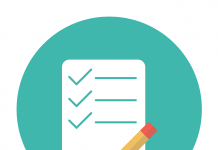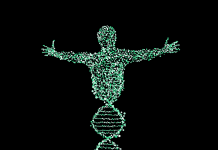First Contact After an Arrest
From the instant a suspect is handcuffed, deadlines begin to run. A defense lawyer’s early intervention prevents inadvertent self-incrimination during interrogation and preserves evidence that might otherwise disappear. Rapid action can mean obtaining surveillance footage before it is overwritten or locating witnesses while memories remain sharp. Timely advice calms clients and family members, allowing them to make rational choices under stress.
Early Intervention Shapes Outcomes
An attorney who enters the case before formal charges are filed can sometimes persuade prosecutors to reduce allegations or drop them altogether. Presenting documentation that contradicts probable cause, highlighting an alibi, or pointing out procedural flaws may avert the reputational harm of a public indictment. Even when charges proceed, groundwork laid during this stage guides later motions and plea discussions.
Negotiating Fair Agreements
Roughly nine out of ten felony cases in the United States conclude with negotiated pleas. Defense lawyers study sentencing statistics, weigh mitigating factors, and compare the strength of the state’s evidence to the risk of trial. They then bargain for reduced counts, alternative sentencing such as treatment programs, or agreements that protect immigration status. Effective negotiation conserves judicial resources while still honoring victims’ rights.
Trial Advocacy: Persuasion Built on Evidence
When talks fail, the courtroom becomes a venue for rigorous testing of facts. Jury selection demands psychological insight, opening statements lay out a clear theory, and cross-examination probes inconsistencies. Defense lawyers use demonstrative exhibits, expert testimony, and precise objections to keep proceedings fair. A single question highlighting a lab technician’s margin of error can dismantle an entire forensic narrative.
Ethical Foundations and Accountability
Although the lawyer owes undivided loyalty to the client, honesty toward the court remains paramount. Rules of professional conduct forbid presenting evidence known to be false or allowing perjury. This dual obligation—zealous advocacy within ethical bounds—reinforces public faith in the adversarial system. Disciplinary bodies monitor compliance, and violations risk suspension or disbarment.
Beyond the Courtroom: Education and Reform
Many defense lawyers speak at schools, town halls, and legislative hearings, explaining how proposed laws might affect residents. Their front-line experience with mandatory-minimum statutes, bail schedules, and probation conditions informs policy debate. Grassroots education helps community members understand their rights during police encounters, lowering the chance of unnecessary arrests.
Interdisciplinary Knowledge in Modern Practice
Digital footprints, genomic sequencing, and mental-health evaluations now appear regularly in criminal files. A modern lawyer consults data analysts, neurologists, and social workers to interpret complex material. By translating technical findings into plain language for judges and jurors, counsel prevents misconceptions and promotes informed decisions.
What Clients Should Expect
Open communication begins with a written representation agreement that outlines scope and cost. Regular updates keep clients involved in strategy, while prompt replies to questions build trust. Lawyers should explain every option—trial, plea, or diversion—along with likely consequences so that clients remain the ultimate decision-makers.
Continued Support After the Verdict
Representation often extends beyond the final gavel. When clients obtain acquittals, attorneys help them seal or expunge records that linger in commercial databases. For those who receive convictions, counsel guides appeals or motions to modify conditions of probation and parole. Assistance with job-placement resources and license reinstatement reduces recidivism, benefiting society as a whole.
Looking Beyond the Present Case
Each successful defense reinforces core principles of due process and equal protection. By challenging unreliable science today, a lawyer may improve evidentiary standards tomorrow. Through unwavering commitment to fair procedure, a criminal defense lawyer helps the justice system remain worthy of the public’s trust—case by case, courtroom by courtroom.
















